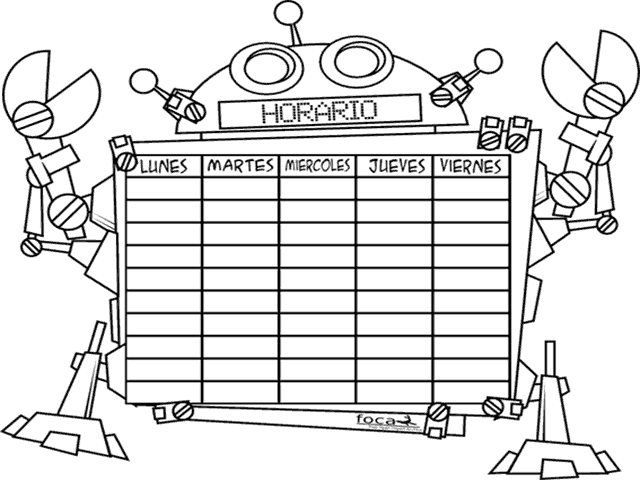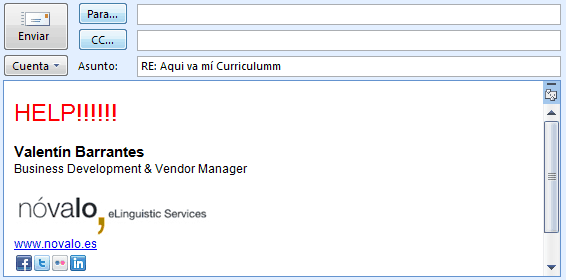Autonomous translator´s organisation: Time and effort

The word autonomous comes from the Greek word αυτόνομος, formed by αυτό- (auto- = self) and νόμος (nomos= law).
In turn, the word νόμος comes from the verb νέμω (nemō = graze, organize, distribute, divide, govern, posses, etc.).
We can understand from here the two meanings the Greek word had:
• The one who follows his or her own laws, independent.
• Cattle which grazes freely.
As the etymology of the word “autonomous” indicates (leaving aside the meaning of “nomos” referred to graze), as I reference above, freelance (autonomous) translators, by definition, have to find ways to organize, divide and govern themselves. But not only the “autonomous” in fiscal terms. Translators´ work, freelancer or on staff, is eminently independent, in this sense of “working on their own”. In the exercise of this autonomy, it is very useful to subscribe to certain professional blogs which, without being specifically related to translation, help a lot in the development of this profession, since translators have to be, in many cases, self-taught. And they have to be it in almost all, if not all, issues surrounding their profession except, I dare say, the translation itself. Because teachers, at university, do try to teach and form translators and translators to be do try to learn to. If they got it or not, it will be the market to judge. But apart from this, everything required for a translator to become so must be learnt translating, each one by her or himself.
The subscription to some of these professional blogs mentioned above (as infoautónomos.com) can be very useful to find some keys, particularly, the keys listed in this post (its usefulness is, then, proven). It was something I long wanted to write about and, by chance, as if I had invoked my muses, it came to my inbox in the form of an email. The post I’m talking about makes a statement that I fully endorse: speaking of software for managing and scheduling tasks, concludes that “productivity is not software, productivity are small habits, routines and actions that allow us to make the best of ourselves to get great results”.
I find this statement specifically applicable to translator´s work, freelancer or not. And that is the reason why I decided to devote my post to those routines and habits that any translator should manage to acquire and develop over the years. In particular, those that have proven to be very useful for organizing time and making the most of their effort.
First, regarding to time, fixing the hours for our normal working day is essential:
This, for the wage-roll translator, is simple, because, for better or worse, it comes imposed. However, the freelancer has more flexibility. The criteria for choosing these working hours depend on each one individually. It will always be wiser to choose the time-range in which you feel more productive but it is essential to consider the customers´ working hours, since, at the end of the day, they need availability on the resource that translators´ work is for them; In case of freelancers, having the same time schedule on a daily basis is crucial. Minds need to get used to be clear and focused every day at the same time-range, in the same way customers need to know for sure when to reach their providers.
Moreover, translators, freelancers or on staff, work for many different clients. This factor has much weight when it comes to organization, since for customers working at office hours, availability of the translator must be guaranteed within that schedule which, noticeably, varies according to the time zone of the country.
Certainly, the advantage of flexibility is always there for the freelancer, since they are still “self-workers”, but that flexibility should be just that: an advantage, something working in translators´ favor and not becoming their worst enemy, leading to a chaotic schedule. Too much flexibility often leads to a mess. Also, working in synchronization with colleagues at the client’s office also helps you feel, in a way, part of the team.
Following this topic of working hours, once they are fixed, according to each clients´ work volume ordering, it is crucial respecting them, sticking to them and making our customers understand that translators are the ones that best know and can calculate how many hours translations require. Otherwise, we risk never stop working, ending after hours or being imposed a time limit in which quality uses to be left aside in favor of costs. I make a point here to note that, in this daily job, keeping some time to a brief rest is as important as respecting the time and effort assigned to each translation.
And in line with the latter, I go into the issue of the organization of effort. Perhaps, effort is more difficult to quantify in general because each one has their own, particular, capacity limit. In any case, I think everyone has to be aware of that limit and not exceeding it, because in that precise moment, you start losing productivity. Time helps to better manage this facet of translators´ work, when you have built a mental statistic on how far you are able to reach and perceive exactly when you are not. Keeping on beyond the limits of each one´s own capacity always takes its toll in the form of fatigue, a more manageable consequence, and loss of quality in deliveries, a riskier effect we should avoid.
I would like to open a parenthesis to clarify something about this concept, “productivity”: when, apart from working for other clients, you also form part of a company´s staff of freelancers working daily with the team on site, the concept of productivity greatly varies, is much more complex. Productivity, in this case, is not only quantified in terms of meeting deadlines and satisfying quality criteria. Productivity in a team is also measured by the quality of personal and professional relationships developed with “remote colleagues”, by the ability to solve problems risen within the team, the autonomy that you must gain to keep the rhythm of the team… getting to acquire and master all of these skills requires a commitment that freelancers need to take into account for the organization of their time and effort. Because they do take time and effort and are factors that should not be omitted just because they are not pure and specific translation.
So, to reach a conclusion, I would advise translators to do an insight job of self-knowledge of their own limits and resources to be able to extract the most out of both, if we want to be consistent with and honor the true meaning of the word “autonomous” that, whether it also refers to our fiscal and administrative state or not, it clearly defines the way translators work.





Sin respuestas a "Autonomous translator´s organisation: Time and effort"